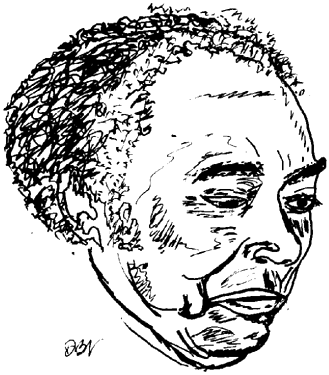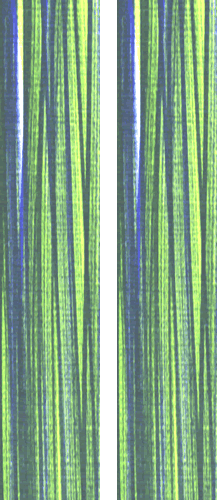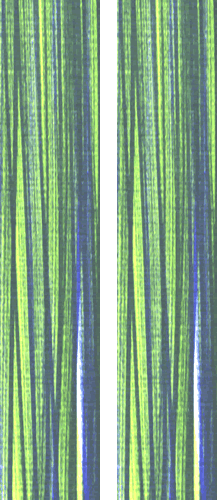|
 |
"It's Bad You Know" R. L. Burnside (Blast From The Past) Composed by R. L. Burnside and Tom Rothrock
Listen to R.L. Burnside singing "It's Bad You Know" on YouTube.
May 1, 2010:
"I was looking on your store for my girl friend's birthday," a reader wrote recently to your Daddy B. Nice, "and I noticed a bit of R.L. Burnside memorabilia. I was wondering if there was any way you or one of your affiliates could get an autographed item. I know R. L. has passed several years ago but I figured if anyone could point me in the right direction it would be y'all."
The letter highlights an aspect of the contemporary music scene that with little fanfare is gaining momentum and importance: the buying and selling of rare and out-of-print records and the sale of artist memorabilia.
Just as live concerts have become an important new source of revenue for artists, so also has the increasingly sophisticated and knowledgeable fan base's demand for hard-to-get recordings and personal items by their favorite artists.
Of course, from the business perspective of the artist, you can't count on a high volume of sales in the Southern Soul-rhythm & blues community. So one falls back upon the "rare" or "novelty" memorabilia market, the what-will-this-be-worth-in-thirty-years mania that fuels the antique shops and flea markets.
In the case of R. L. Burnside, who passed away in 2005, I would recommend that the reader follow the concert itinerary of R. L.'s grandson Cedric, who tours extensively across the country--and not just Dixie. (Also Kent and Gary Burnside. DBN.)
Dropping into the green room before or after a gig is undoubtedly the best way to meet the legend's closest performing relations and score that unique keepsake.
--Daddy B. Nice
*******************
Daddy B. Nice's Original Critique:
If Jimi Hendrix had grown up in a north Mississippi sharecropping family, he might have sounded something like R.L. Burnside. Burnside's music, like Jimi's, is "huge" and technically awesome, and this in spite of the fact it's the closest thing to hard-core blues on this chart. But R.L. Burnside is a strange case on more than one count.
My Chicago-based, musical-archivist brother tells me he got sick of hearing "It's Bad You Know," Burnside's great Afro-Rebel blues rant, because he heard it played too much on Chicago-area radio. I was surprised, but I've found that Burnside receives far more airplay in northern cities and even college towns than he does in the Deep South.
Made nationally famous by its prominent inclusion in The Soprano's S.T. (Sony, 1999), the riff in "It's Bad You Know" was taken from earlier Burnside reworkings of the Muddy Waters blues classic,"Rollin'& Tumblin'." A drums-and-bass chug-a-long with few equals (not a little of it due to the savvy of alternative/techno engineer/bassist Tom Rothrock) you'd have to be wheelchair-bound to withstand "It's Bad You Know's" get-up-and-dance, anti-gravitational energy.
And every layer of production technique that Burnside adds--a drum corps worthy of a Brazilian samba band, the vintage mouth harp (Lester Butler), the exquisite Stax organ, the marvelous middle "moaning" verse (Burnside himself)--adds pleasure to joy. It's as if J.B. Lenoir had metamorphosized into a 21st-century bluesman in the middle of singing about the "county farm."
Burnside's habit of revisiting his catalog again and again, honing and refining certain tracks as the years and CD's go by, is never more evident than on "Bad Luck City," his other bona fide masterpiece. Not, mind you, the "Bad Luck City" of Burnside's early recordings (i.e. Sound Machine Groove, 1997) which sounds in retrospect as thin and transparent as a demo (which in essence it was, complete with the family), but the Wish I Was In Heaven Sitting Down CD's otherworldly treatment of "Bad Luck City," which could be queued up after Hendrix's "Hey Joe" without a drop-off in mood or power.
Arguably his finest LP, Burnside's Wish I Was In Heaven Sitting Down (Fat Possum, 2000) benefited greatly from the infusion of talent represented by producer John Porter, session guitarist Smokey Hormel, and new-generation multi-instrumentalists DJ Pete B and DJ Swamp. But one also has to give credit to Burnside for being open to the new influences, which--let it be said--never stray from the shadows of Burnside's aesthetic vision or his aged and brooding vocals, like these words from "Hard Time Killin' Floor Blues":
"Two brothers and my father
Got killed in Chicago.
That's why I don't like living there.
It's too rough a place.
People going up and down the streets,
Shooting, killing people."
Burnside alternates between dramatically-timed spoken monologues and caterwauling wails of choruses, the crystal-clear timbre of his voice transporting the listener from one to the other as smoothly as gel. Yet no matter how ambient or enhanced the musical grooves in "Hard Time Killin' Floor Blues" or "Bad Luck City", they're still R.L.'s all the way. He could be sitting on a hay bale, weed sticking out of the corner of his mouth, when he says:
"It's a problem
When you love these women,
And they don't love you."
"Bad Luck City" and its companion track, R.L.'s cover of "Hard Time Killin' Floor Blues," both from the Wish I Was In Heaven CD, rival vintage Vaughn, Clapton or Hendrix in musical purity and intensity, and trump them all courtesy of Burnside's powerfully credible, country-steeped vocals.
Burnside's fortunes vary widely on the chitlin' circuit, depending upon the blues quotient of the radio stations involved and how their deejays define their role in rhythm and blues. R.L. is not your typical chitlin' circuit Southern Soul fare, but just as soul food requires a base of pork rinds, ham hocks, or chicken giblets, Southern Soul always includes a portion of straight blues tossed into the rotation to spice up the mix.
In addition to being one of the last living links to the Muddy Waters/John Lee Hooker generation, R. L. Burnside has become--perhaps by default--the updater of the blues for the digital age. He's absorbed what Muddy Waters did in electrifying the blues, and taken it to yet another level, amplifying the tempestuous rhythms of early acoustic blues.
--Daddy B. Nice
About R. L. Burnside (Blast From The Past)
R.L. Burnside was born in Lafayette County, near Oxford, Mississippi in 1926, making him arguably the oldest living artist on the Southern Soul R&B scene. He began singing blues and playing guitar in the 1950's. Although his father was a blues guitarist, R.L. was more inspired by John Lee Hooker's "Boogie Chillun,'" cultivating a style of North Mississippi blues that musicologist Robert Palmer later described as "a churning, jamming one-chord exercise in stamina and mass hypnosis."
Tired of sharecropping, Burnside migrated to Chicago and other points in hopes of finding economic opportunity, but family tragedies (in the span of one month Burnside's father, brother, and uncle were murdered) occasioned his return to Mississippi. Many of his later recordings (his remake of "Hard Time Killing Floor," for instance, or the background atmosphere on "Bad Luck City") drew upon those early experiences.
In 1967 blues researcher George Mitchell made the first recordings of Burnside's powerful country blues, and they earned him enough of a reputation to secure occasional festival appearances and tours. But Burnside's career skyrocketed in the early nineties when a documentary based on Robert Palmer's book Deep Blues featured Burnside as one of its highlights.
Too Bad Jim, the album that followed, was one of the most influential blues albums of the nineties. It brought R.L. to the attention of post-punk musician Jon Spencer, and a subsequent tour with his Blues Explosion and inclusion in a teenage party record, Ass Pocket of Whiskey, made Burnside an unlikely favorite of the indie rock set.
Then, in 1998, with the release of the CD Come On In and its smash single, "It's Bad You Know," featured on the soundtrack of the HBO series, "The Soprano's," R.L. Burnside's late-in-life cachet as the South's hippest bluesman was finally complete. Since the late nineties, he has recorded on average an album per year, the vast majority on the estimable blues label, Fat Possum.
Song's Transcendent Moment
"It's Bad You Know's" transcendent moment is the aforementioned "moaning" verse, whose words--garbled as they are in the percussive mayhem--remain a mystery.
Tidbits
September 1, 2005: The fathers of Southern Soul continue to fall at an alarming rate. Word came over the radio today that R. L. Burnside had died at the age of 78. Ironically, this news came on the heels of the announcement that Fats Domino had been rescued from the devastating floodwaters of Hurricane Katrina at his home in New Orleans.
The gates to "Soul Heaven" have been crowded this year, with Little Milton, Jackie Neal and Tyrone Davis preceding R.L.'s passing.
If You Liked. . . You'll Love
If you were a fan of Creedence Clearwater Revival's "Proud Mary" and its many great R& B covers, you should get into "It's Bad You Know."
Honorary "B" Side
"Bad Luck City"
|
 |
 
     
 
It's Bad You Know
CD: Come On In
Label: Fat Possum
|
     
 
Bad Luck City
CD: Wish I Was In Heaven Sitting Down
Label: Fat Possum
|
     
 
Hard Time Killin' Floor Blues
CD: Wish I Was In Heaven Sitting Down
Label: Fat Possum
|
    
 
Bad Luck And Trouble
CD: Burnside On Burnside
Label: Fat Possum
|
    
 
Georgia Women
CD: Mr. Wizard
Label: Fat Possum
|
    
 
Nothin' Man
CD: Wish I Was In Heaven Sitting Down
Label: Fat Possum
|
    
 
Rollin' Tumblin' (Remix)
CD: Come On In
Label: Fat Possum
|
   
 
Black Mattie
CD: Wish I Was In Heaven Sitting Down
Label: Fat Possum
|
   
 
Boogie Chillen
CD: Ass Pocket Of Whiskey
Label: Matador
|
   
 
Goin' Down South
CD: Ass Pocket Of Whiskey
Label: Matador
|
   
 
Too Many Ups
CD: Come On In
|
   
 
When My First Wife Left Me
CD: Acoustic Stories
Label: M.C.
|
  
 
Shake 'Em On Down
CD: Bothered Mind
Label: Fat Possum
|
Sample or Buy
Bothered Mind |
|









